Don’t Check My Search History
Every book starts with a question.
Sometimes it’s big: what happens when the past catches up with you? How far would you go to protect the truth?
But sometimes it’s… different. More like: What’s the best musical instrument case to hide a body in?
These are the questions that show up when I’m halfway through a manuscript, deep in a character’s head, and suddenly need to know something no normal person should ever need to know. I’m not sorry. The better the questions, the better the story.
So here you go. Real things I’ve had to figure out while writing. May you find this information useful.
“What happens to the brain when someone gets punched full-force in the head?”
It’s not like the movies. One solid punch can cause a concussion, temporary blackout, nausea, or worse—depending on the angle, force, and whether the head hits something else on the way down. The brain doesn’t like being jostled. It floats in fluid, and when it slams against the skull? That’s when things get real. You don’t need a weapon to do damage. Just rage.
“How long does it take a body to decompose in the snow?”
Slower than you’d hope. Cold preserves. Snow buys you time. But if animals show up? Game over.
“Can you wipe fingerprints with snow?”
Nope. Snow smears, but it doesn’t erase. All you’re doing is adding moisture and false hope (you can see I write a lot about the snow).
“What’s the best thing to buy at a music store if you need to transport a body?”
Tuba case. Big, wheeled, and no one wants to help you carry it. Instant plausible deniability.
“What naturally growing plant in Idaho can poison someone?”
Oleander. Gorgeous. Deadly. Common in decorative landscaping. Nature’s gift to thriller writers. But be careful – oleander is fragile and often won’t survive the winter.
“Where near NYC could someone dump a body without being noticed?”
The Meadowlands. Just across the river from Manhattan. Marshy, remote, and full of urban legend. A burial site with bonus mob lore. All that being said, it’s a bit of a cliché. so best to find a comparable location.
“How much physical effort does it take to stab someone in the chest with a dull kitchen knife?”
More than you’d think, and it’s not clean. The human chest is built to protect the heart and lungs, which means ribs, cartilage, muscle, and resistance. A dull knife doesn’t glide. It drags, snags, and requires serious force, especially to penetrate deep. It’s not graceful. It’s messy, violent, exhausting. You’d be sweating, slipping, maybe needing multiple tries. The movies lie. Real violence takes strength, commitment, and a stomach for the sound of it.
“Can someone who’s experienced trauma go into a fugue state and lose time?”
Yes—and it’s terrifying. People can wander off, forget who they are, live entire days under a new identity, and then snap back with no memory of what happened. For fiction, it’s a goldmine. For real life? A nightmare.
“How do people get caught using burner phones?”
By being dumb. They turn it on at home, call their real phone, or carry both devices together. Cell towers connect the dots. “Untraceable” is a myth if you’re sloppy.
“Is it possible to clean up a large pool of blood from a hardwood floor without leaving a trace?”
Not really. You can bleach, sand, and refinish, but luminol sees everything. If you want it gone for good, you’re tearing up floorboards and hoping no one checks your trash.
“What are the odds a white, suburban woman in her 30s will get caught if she murders someone?”
Pretty damn high, but not guaranteed. Most murders are solved, especially when committed by someone in the victim’s inner circle. That means if our hypothetical suburban thirtysomething kills her husband, boyfriend, boss, or frenemy… she’s likely toast. The clearance rate for homicide in the U.S. hovers around 60–65%, and it’s even higher when the suspect is known to the victim.
But here’s the twist: she has some natural camouflage. Women are less likely to be seen as violent, and white women in particular are often underestimated by law enforcement, juries, and even investigators—especially if they present as cooperative, emotional, or “just not the type.”
That gives her an edge in manipulation, misdirection, or straight-up bluffing. Statistically, women commit far fewer murders (only about 10% of homicides), and when they do, it’s often in domestic contexts, which are easier to solve.
So: if she’s sloppy? She gets caught. If she’s methodical, careful, and patient? She might slip through.
I don’t ask these questions because I’m trying to be creepy. I ask them because I want to get it right. Because if a character is going to go off the rails, I want to make sure the rails are mapped accurately. That the horror is believable. That the blood doesn’t magically disappear just because the chapter ends.
So no, I’m not a killer. I’m just a writer with a lot of strange knowledge, a private browser window, and a commitment to making the page feel real.
Still, if I ever vanish… maybe check my notes before you call the cops.
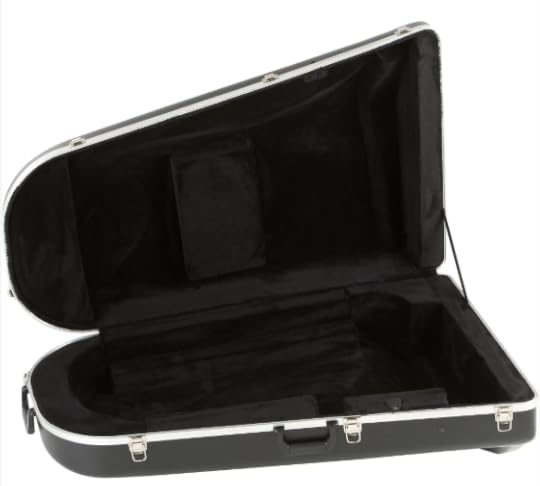
The ever useful tuba case.

New episodes of my podcast Making It Up are out! Over the past month I chatted with:
Episode 188: Matt Goldman – New York Times bestselling author and Emmy-winning TV writer (Seinfeld, among others), himself no stranger to plotting tight turns and comedic timing. Matt and I dug into how stand-up comedy sharpened his sense of timing, how he stays true to his comedic voice even when writing for legacy shows, and what relentless brevity taught him about suspense.Episode 187: Joshua Moehling – USA Today bestselling author of the Ben Packard series (And There He Kept Her, Where the Dead Sleep). In this one, Joshua shares the thrill (and terror) of quitting the day job and going full-time author—and yes, he really did make the leap.Episode 186: Traci Hunter Abramson – CIA alum turned award-winningsuspense author (Royal Intrigue, Novel Threat). We dug into how her years in intelligence shape her plots (yes, there’s a cover-board review process), why she treats writing like a day job, and how balancing family life keeps her grounded.All episodes are available on my website, my YouTube channel, and wherever you get your favorite podcasts.
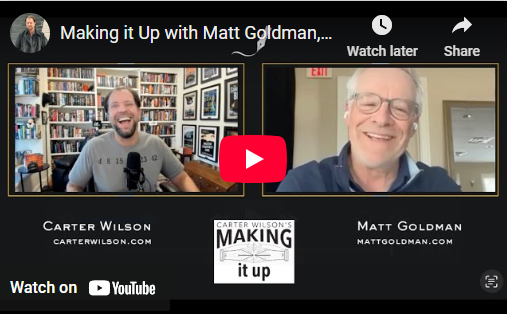

Have I had as much fun at book event as I did at the Hamptons Whodunit? Hell, I don’t think so.
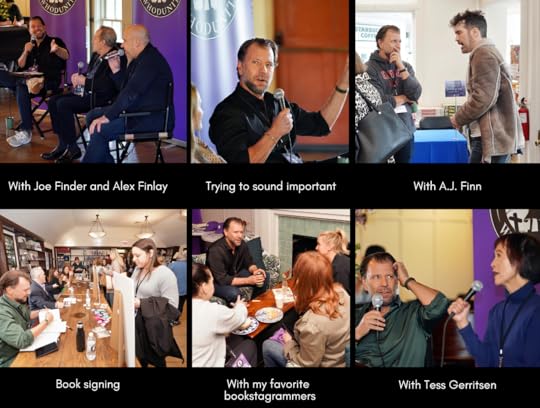

REVIEWS
On the Page
How to Survive a Horror Story, Mallory Arnold (Poisoned Pen Press, July 2025)
A wicked blend of horror satire and psychological suspense, Mallory Arnold’s How to Survive a Horror Story turns the haunted-house trope inside out. A group of horror writers are trapped in a haunted mansion where surviving means confronting the darkest chapters of their own lives. Imagine if Agatha Christie, Shirley Jackson, and the ghost of a very pissed-off editor threw a party—and then murdered the guests one by one. It’s funny until it’s not, smart until it’s brutal, and deeply unsettling all the way through. Arnold’s voice is razor-sharp—darkly funny, emotionally devastating, and entirely her own. This is one hell of a debut.
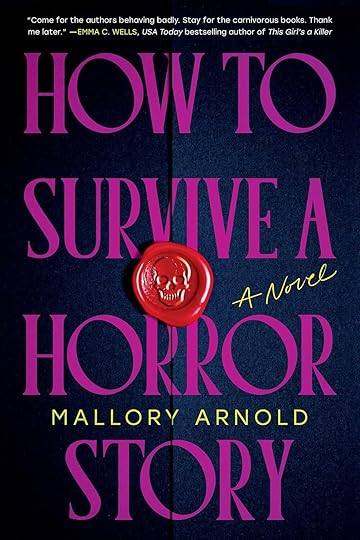
On the Screen
Department Q (Netflix, 2025)
Jessica and I are five episodes into Department Q on Netflix, and I’m hooked. It’s dark, brooding, and gorgeously shot—but what really gets me is this: I don’t like anyone in it. At all. And that’s exactly why it works.
What makes it great isn’t just the crime solving. It’s the emotional mess underneath—the way guilt, trauma, and apathy keep leaking through the cracks. No one’s playing hero here. These are deeply damaged people barely doing their jobs, and that low hum of dysfunction is the perfect backdrop for the cold-case mysteries they’re digging up. You don’t root for them because they’re charming. You root for them because somehow, in all their unlikability, they still care—even if they don’t admit it.
If you like your crime fiction cold, slow-burn, and full of unresolved tension, Department Q delivers. Just don’t expect anyone to smile. Ever.
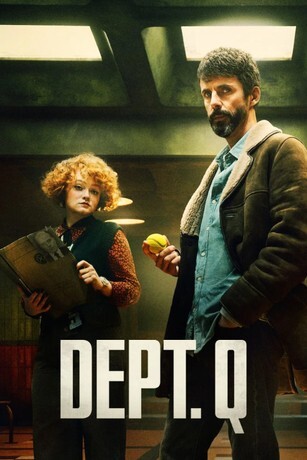
Photo of the Month
Sometimes when I’m feeling my little Colorado town is getting too big for my tastes, I take a turn and find peace again.
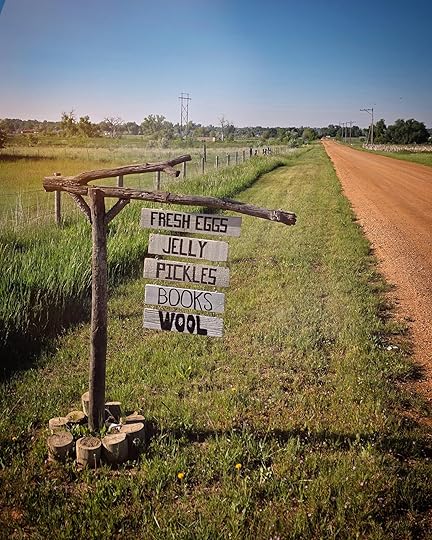
Update from my Kids
The girl is back home! The girl is back home!
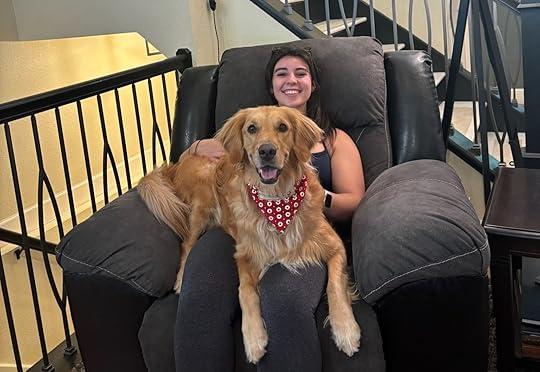
Update from my Pets
This was a precursor to a major battle.
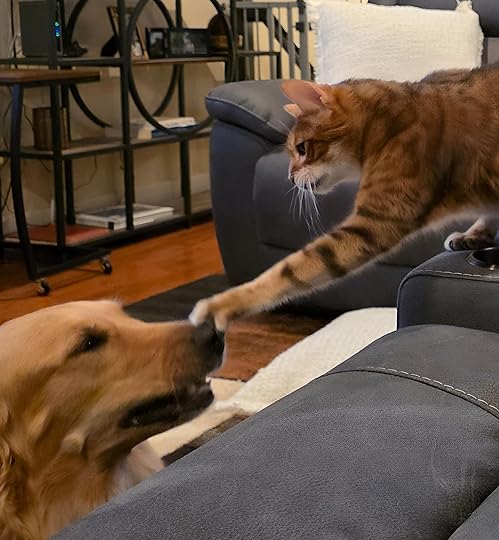
Humor of the Month sent to me by a friend
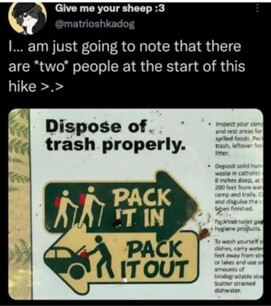
All you writers!
Eighteen months ago, I founded Unbound Writer out of my love for storytelling—and for talking to other writers about how they do it.
Since then, it’s grown into so much more:
✍️ One-on-one coaching
🏞️ Writing retreats and seminars
🎥 Online classes for writers at every stage
And now, the How I Write series is live—honest, self-guided classes from bestselling authors sharing how they actually get the work done. No formulas. No gatekeeping. Just the real process behind the words.
If you’re ready to level up your writing, start here: unboundwriter.com
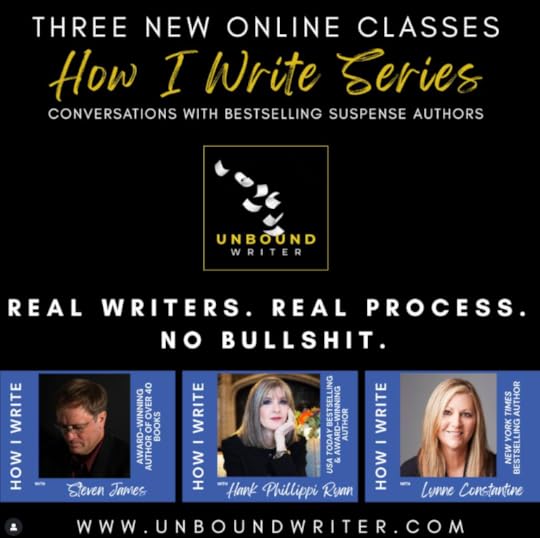
That’s it for now!
Just a reminder to subscribe to my newsletter for more content and access to contests and giveaways. Oh, and if you follow me on social media you’ll see a lot more pictures of my goddamn pets. Until next month…




